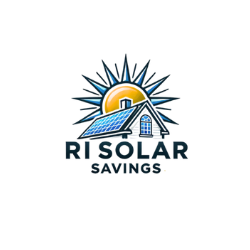ASK & WE ANSWER
The “Need to Know” About Solar Benefits
FAQ – Solar Benefits!
- All
- Costs and Savings
- Energy Production and Monitoring
- Incentives and Rebates
- Installation Process
- Solar Basics
Standard solar systems are grid-tied, meaning they rely on the utility grid for power when the sun isn’t shining. To have power during an outage, you’ll need to install a solar battery system. Batteries store excess energy generated by your panels for use when the grid goes down.
If your roof is nearing the end of its life (usually less than 10 years remaining), it’s recommended to replace it before installing solar panels. Many homeowners opt to replace their roof and install solar at the same time, and you can often include the cost of the new roof in your solar financing plan.
Solar systems are built to be low-maintenance, but if a panel stops working or underperforms, most systems come with warranties and monitoring that notify your provider. If an issue arises, the installer will handle repairs or replacements at no extra cost.
While the goal is to offset as much of your electricity usage as possible, not all homes can produce 100% of their energy needs with solar. However, even offsetting part of your usage will still result in significant savings on your energy bill. Think of it as a lifetime discount on your electricity costs.
Yes! Solar systems come with real-time monitoring apps that allow you to track your system’s energy production. You can see how much energy your panels are generating and how much electricity your home is using at any time.
If you sell your home, you have two options:
- Transfer the solar financing agreement to the new homeowner.
- Pay off the remaining balance and include the value of the solar system in the sale price. Homes with solar panels often sell faster and at a premium, as buyers recognize the value of lower energy bills.
Solar panels are designed to last 25-30 years or more. During this time, they typically require little to no maintenance, and many come with a 25-year warranty covering both performance and equipment.
No, solar panels should not damage your roof when installed correctly. Before installation, a thorough inspection is conducted to ensure your roof can support the system. Solar installations come with warranties that protect your roof from leaks or damage caused by the installation process.
Homeowners can save 20-30% or more on their monthly energy bills by going solar. The exact savings depend on your home’s energy consumption and the size of the solar system installed. Over the lifetime of the panels (25+ years), you could save thousands of dollars on your electricity costs.
Yes! Even with Rhode Island’s mix of sunny and cloudy days, solar panels are designed to generate electricity efficiently. Solar technology has advanced significantly, allowing panels to produce power even in overcast conditions. Rhode Island receives an average of 200 sunny days per year, making it a great location for solar energy.
Solar panel installation costs vary depending on the size of the system and your home’s needs. However, with $0 down financing options and state and federal incentives, many homeowners can go solar without any upfront costs. The total cost of the system is typically offset by monthly energy savings.
- Federal Solar Investment Tax Credit (ITC): Deduct 30% of your solar installation cost from your federal taxes.
- State Rebates: Rhode Island’s Renewable Energy Fund offers rebates to reduce upfront installation costs.
- Net Metering: You earn credits for excess energy generated by your solar panels and sent to the grid, further reducing your utility bill.
Net metering allows homeowners to earn credits for any excess energy produced by their solar panels. During sunny days, your system may generate more electricity than your home uses, and that extra power is sent back to the grid. In return, you receive credits on your electric bill, which can be used when your panels produce less energy (like at night or in winter months).
With $0 down financing, you don’t need to pay anything upfront to go solar. Financing options allow you to start saving on energy costs from day one, with fixed payments that are often lower than your current electric bill.
The typical solar installation process in Rhode Island takes 8-12 weeks from signing up to system activation. This includes design, permitting, installation, and final inspections. Each city and utility company has slightly different timelines, but most homeowners see their systems turned on in less than three months.

